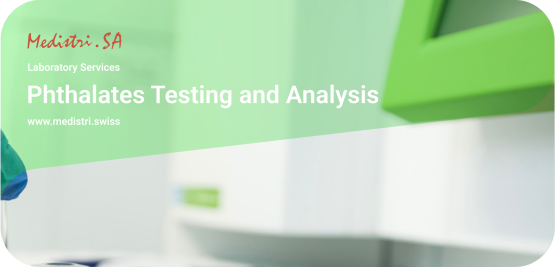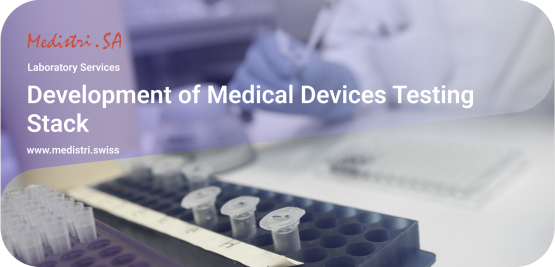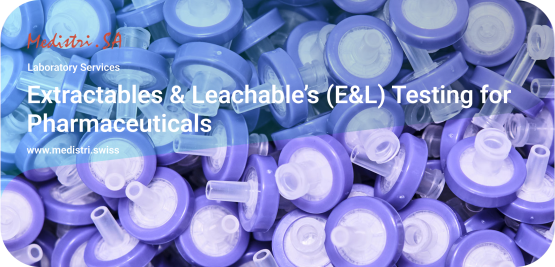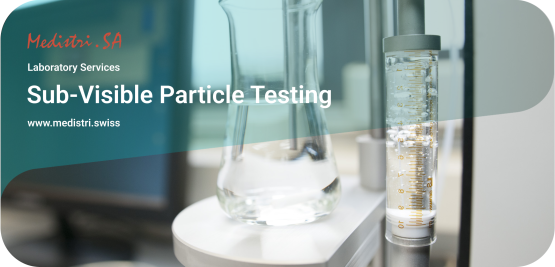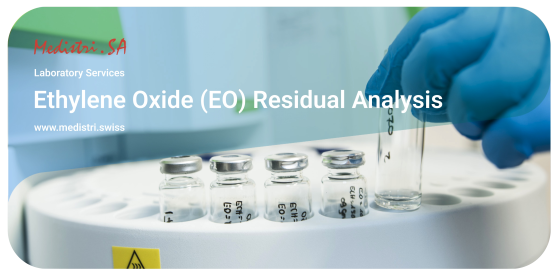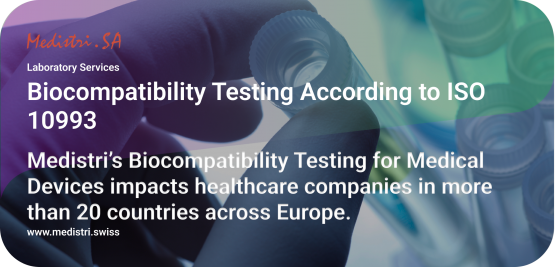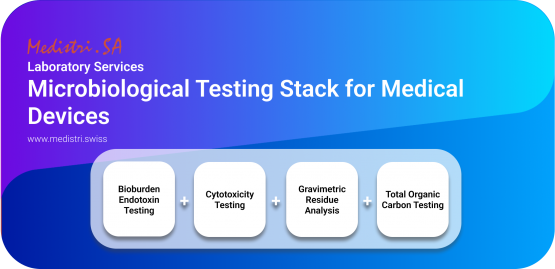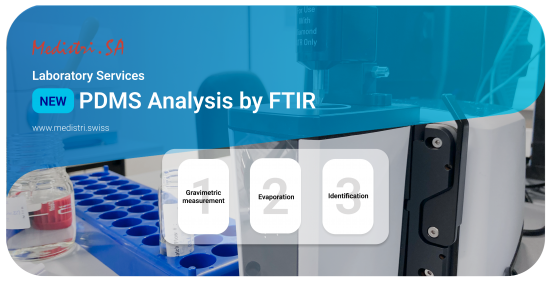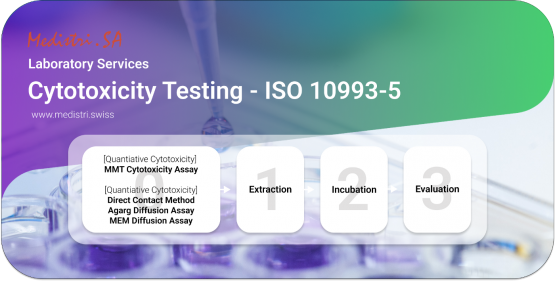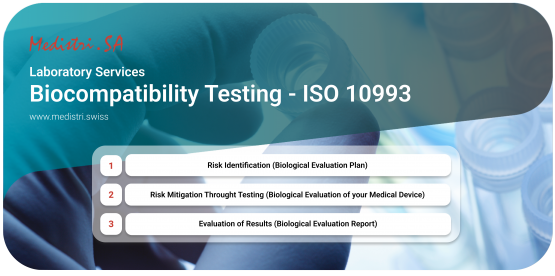Phtalates Testing and Analysis
Medistri can perform phthalate trace level detection analysis and screening of products and materials especially made of polyvinyl chlroride (PVC). These regulations require some industries to heavily & regularly monitor the presence an amount of these specific compounds. They have been established to monitor either low percentage or part per million (ppm) levels.
Development of Medical Devices Testing Stack
Patient safety is predicated on the medical device’s specific structural materials and also on a comprehension of the compounds and residuals that might be produced or recognised throughout the supply chain. Medistri’s laboratory team aggregates all data, outlines findings, and recommend risk management proposals in a transparent, detailed, and precise manne — Allowing you to bring your safe product to market quickly.
Extractables & Leachable’s (E&L) Testing for Pharmaceuticals
Extractables and leachables (E&L) studies are now a crucial component of product release. Medistri’s Laboratory provides GMP-compliant leachables method validation for use in GMP stability testing and storage programs and are able to support a variety of closure or drug delivery systems.
Sub-Visible Particle Testing
Medistri’s laboratory performs medical device particulates testing on injections, parenteral infusions and medical devices as particulate matter is produced through various sources during processing. Particulate matter in injections and parenteral infusions consists of mobile undissolved particles, other than gas bubbles, unintentionally present in the solutions.
Ethylene Oxide Residual Analysis
Because of its broad material compatibility, ethylene oxide (EO) is frequently used to sterilize medical equipment. It’s possible for EO to leave a residue on the material being sterilized. The following are the residues that may remain following sterilisation:
- Ethylene Oxide (EO) is a possible byproduct of processing.
- Ethylene Chlorohydrin (ECH) is a potential by product of EO’s interaction with free chloride ions.
- Ethylene Glycol (EG), a byproduct that may result from the interaction of EO with water.
Medistri’s Biocompatibility Testing for Medical Devices impacts healthcare companies in more than 20 countries around Europe.
The company’s laboratory provides Biocompatibility Testing for Medical Devices according to ISO 10993. Working primarily with customers across Europe in Austria, Belgium, Finland, France, Germany, Greece, Ireland, Italy, Norway, Denmark, Israel, Switzerland, Luxembourg, Croatia, the Netherlands, Portugal, Hungary, and the UK.
Microbiological Testing Stack for Medical Devices
Developing innovative medical device technology is a high-risk operation.
That’s why start-up ventures to large established medical devices manufacturers use Medistri’s laboratory testing services to deliver accurate and reliable results for all their testing needs.
[NEW] PDMS Analysis by FTIR
PDMS analysis by FTIR is a test that consists of extracting and identifying PDMS residues in a qualitative/semi-quantitative method in pharmaceuticals or medical samples.
Cytotoxicity Testing — ISO 10993–5
Cytotoxicity testing is used to determine the toxicity of medical devices and materials. Cytotoxicity testing evaluates whether a material can affect living cells. Medical Device Manufacturers are required to show that their devices are not cytotoxic.
Biocompatibility Testing - ISO 10993
Biocompatibility is defined as “The ability of a device material to perform with an appropriate host response in a specific situation”.

